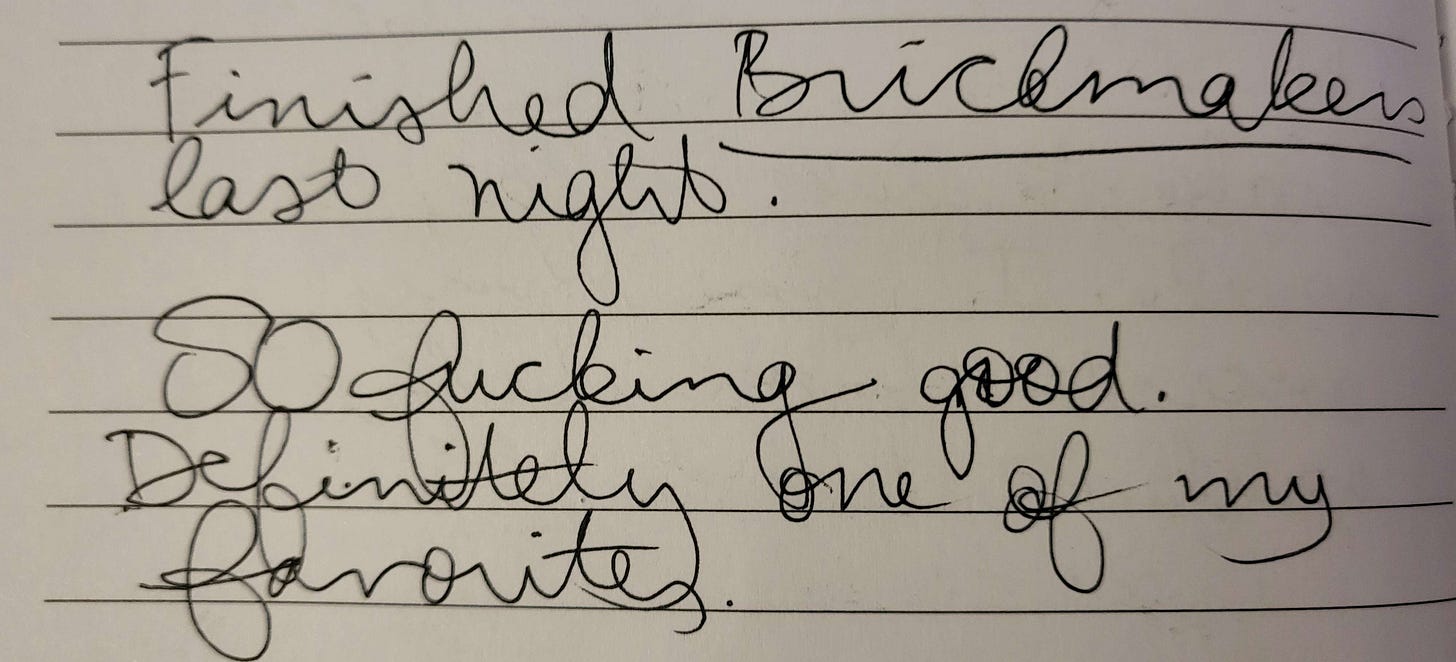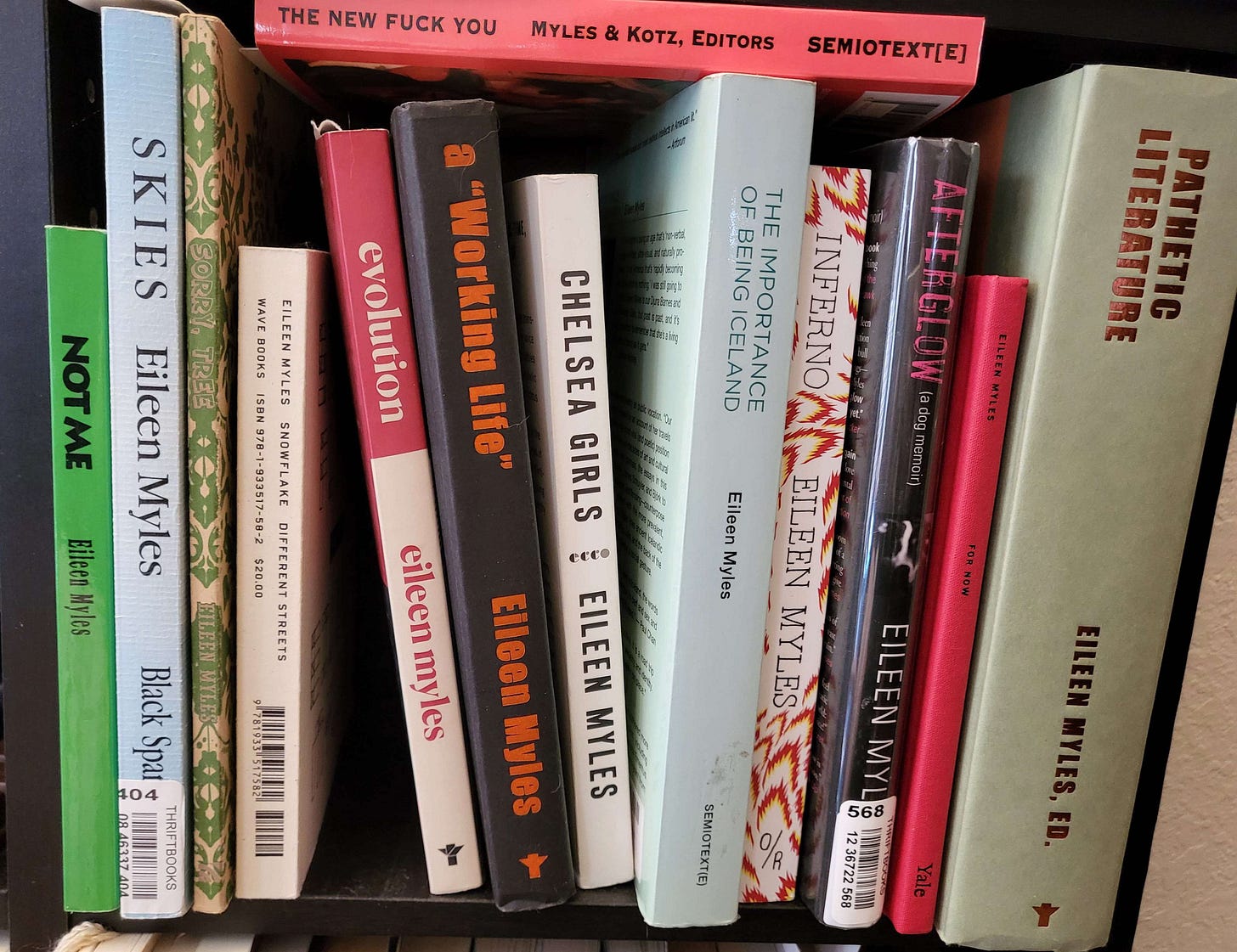It’s been a while since I’ve done a reading round-up, which is something I love doing for trans poetica. Last year, I wrote this post about my ~pride month~ reads.
I figured, why not make it a tradition?
Before we get into this reading list, I have a few updates:
You can check out my last post for current submission calls, or hang tight til the next newsletter. You can also find ways to mobilize for Palestine in the last post, contact your reps in the us through the US Campaign for Palestinian Rights site, or find other actions here.
I also broke 300 subscribers between now and my last newsletter. I’m honestly very touched that my trans passion project is reaching that many people. Truly, thank you. Here’s my first post from November 2022 on why trans poetica got started.
Lastly, my writing retreat fundraiser is so so close to reaching its goal! I’ll be attending the Roots. Wounds. Words. Writers’ Retreat for Storytellers of Color this fall as a writer-in-residency to work on a hybrid memoir. You can learn more about why RWW matters to me on my fundraising page. Thank you thank you thank you times a million to everyone who has helped either donate or spread the word.
OKAY. Still with me? Let’s read!
I have a shorter list than last year— I finished 8 books last June, and 5 books this June. (Key word being finished, as I have a habit of reading a thousand things at once). I’m happy with this lower number for two reasons: 1, I spent most of my non-day job time last month reading, planning, and writing for the Abode Virtual Retreat, which was such a great experience.
2, I am slowing down my pace of life considerably since I graduated from my MFA last May. It’s a long process to deprogram racist and ableist (ok I know I didn’t have to say ableist twice) ideas about myself and my abilities.
Like last June, I made it a point to focus on queer stories— also like last June, I realized this is not so different from my usual reading habits. Aside from that, I did not plan ahead. I simply just chose whatever called to me from my TBR. Every single one of these titles ended up speaking to each other.
Storygraph’s genre demarcations are still kind of amusing to me. Por ejemplo, I’d argue all 5 books were literary, and at least 3 (if not all 5!) were feminist. But I like looking at charts, so there you go.
Brickmakers by Selva Almada, tr. Annie McDermott
Brickmakers tells a nonlinear Romeo & Juliet-esque story with a rural queer Latino setting. Ladrilleros was originally published in Argentina in 2013, and McDermott’s translation came out with Graywolf in 2022. I’m hoping to get my hands on a Spanish copy because the lyricism immediately grabbed me from the first page and I want to experience it again. I inhaled this novel in two sittings.
Born to rival brickmakers in rural Argentina, Pájaro and Ángelito fall in love. Almada weaves their families’ story of queerness, grief, and machismo in a gorgeous, heart-wrenching dreamlike state.
While the tragedy that the novel opens with— Pájaro and Marciano (Ángelito’s brother) dying in the dirt— is catalyzed by queerness and queerphobia, this book was an incisive exploration of rural working class experiences and the machismo that seeps into (and ruins) so many lives. And for what?
All that to say, if you are looking for a feel-good gay love story, this isn’t it. But it’s a book I feel changed by. As a trans Latino especially, I am always hungry for literature that confronts machismo like Brickmakers.
I’ll end this on my only journal entry for June 4th:
transtrender by manuel arturo abreu
transtrender is a brilliant multimedia poetry collection reckoning with the impositions of transness, race, and colonialism. To be honest, it’s difficult to trim down my thoughts to fit in a traditional reading list blurb. I’ll start with this though: decolonial, radical, and anticapitalist study is a lifelong endeavor, and the reason I make and talk about art in the first place.
transtrender starts with a page-long note, beginning:
Trans is a failure of language. Poetry is a failure of the body.
I have the urge to leave more empty space after that quote.
The book is divided into four sections: untitled, naming, site-specific poems, amotivational speech. (Two poems from the first section can be found in The Offing.) Steeped in the material reality of 21st century technology, abreu’s poems are lyrical meditations on embodiment, family, gender. How does one envision or even access the self in the wake of colonization?
The concept of naming grows larger as the poems themselves expand with each section. European violence is named. Latine violence (ej: Vasconcelos’ fascist raza cósmica) is named. White usian feminist violence is named. The transphobic violence of biological essentialism is named.

Transtrender culminates on an amotivational speech on work and race. Lose what you never had, abreu writes in the final paragraph. Forget what you never remembered.
The Subtweet by Vivek Shraya
The Subtweet is a captivating novel, an internet-inspired work of brown feminist theory. Shraya’s novel follows the budding friendship between indie musician Neela Devaki and viral cover artist RUK-MINI. RUK-MINI’s cover of Neela’s song goes viral, leading to their friendship, but also feelings of self-doubt and jealousy for both women.
This novel interrogates what happens when women of color are unfairly, and often unknowingly, pitted against each other by oppressive systems. Specifically, how can Neela and Rukmini both exist as artists in their own rights when the music industry demands white approval? when spur of the moment tweets can start an entire social media storm?
Can self preservation actually be harmful?
The Subtweet is a love letter to the indie Toronto music scene, to brown women, and to feminist of color theory and theorists.
Daddy Boy by Emerson Whitney
Daddy Boy is a book-length essay recounting Whitney’s experience stormchasing after leaving a longterm relationship. Kink, (trans experiences of) gender, and family dynamics swirl around Whitney’s weeks-long journey in a van with tourists hoping to catch a tornado. (Or maybe just a picture of one).
I found myself having the same experience as when I read their other nonfiction book, Heaven— I wanted to underline what felt like every single sentence.
It was also refreshing to read a science-y book that touches on the colonial nature of science. Whitney writes: I’m so tired of the colonial idea that we can know it all, capture it, figure it out, this framework both hurts and exhausts me.
And doesn’t this apply to gender, too, as abreu’s work reminds us? I thought about abreu’s untitled/naming dichotomy while reading Daddy Boy. Whitney asks, What kind of murder does naming do?
Ultimately, Daddy Boy is a book about surrender. Surrender to one’s autonomy, surrender to nature. Perhaps even a surrender to being loved.
I Must Be Living Twice: New and Selected Poems by Eileen Myles
I’ve read this book a few times in the last few years. Some friends and I started a poetry reading group last month, and this was our first pick. It’s been really neat getting to hear what they all think of Myles’ poetry.
Something that really stood out to me on this read of I Must Be Living Twice is the way Myles talks about language itself. I think they said it best, in their essay “My Boy’s Red Hat” from the anthology Troubling the Line:
A poem seems to be a place where for a moment you can put it all. Or everything else falls away. Gender and the self keep turning all the time.
I’m also thinking about how their work as a poet has evolved throughout their career, which I am quite familiar with.
What is the point of poetry and artmaking? Especially in the belly of the imperial beast. That isn’t rhetorical— I want to know what you think.
I’m currently taking my sweet time reading Never, Ever Ever, Coming Down by Iván Monalisa Ojeda, El Rey of Gold Teeth by Reyes Ramirez, and The Autobiography of a Language by Mirene Arsanios.
On the same day I finished transtrender, I read more of The Autobiography of a Language. “Empathy,” Arsanios writes, “is worthless without solidarity. Anger, in my opinion, is a better political ally than shame or lack of self-worth.” I’m reminded of abreu’s words on performative divestment. I do not have the answers, but isn’t that why we write?
That also wasn’t rhetorical. What do y’all think? Also would love to hear any thoughts on these books or others you’re reading below!
<3
Thanks for reading this far down! Trans poetica will always be free, but donations are greatly appreciated! I have four pay-what-you-want zines available here, and I am available for editing, readings, workshops, and more through my site.






